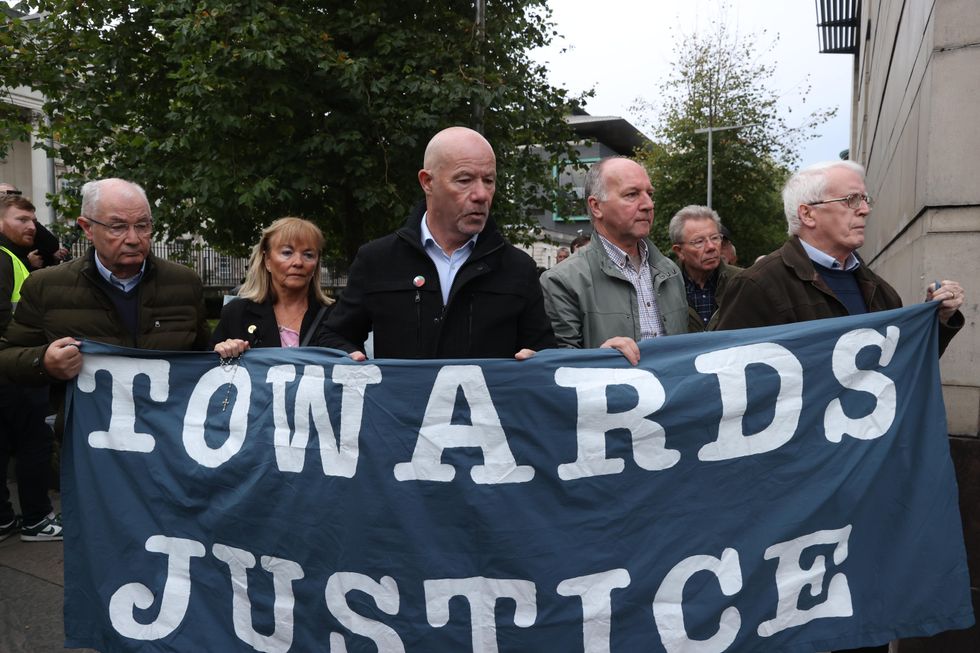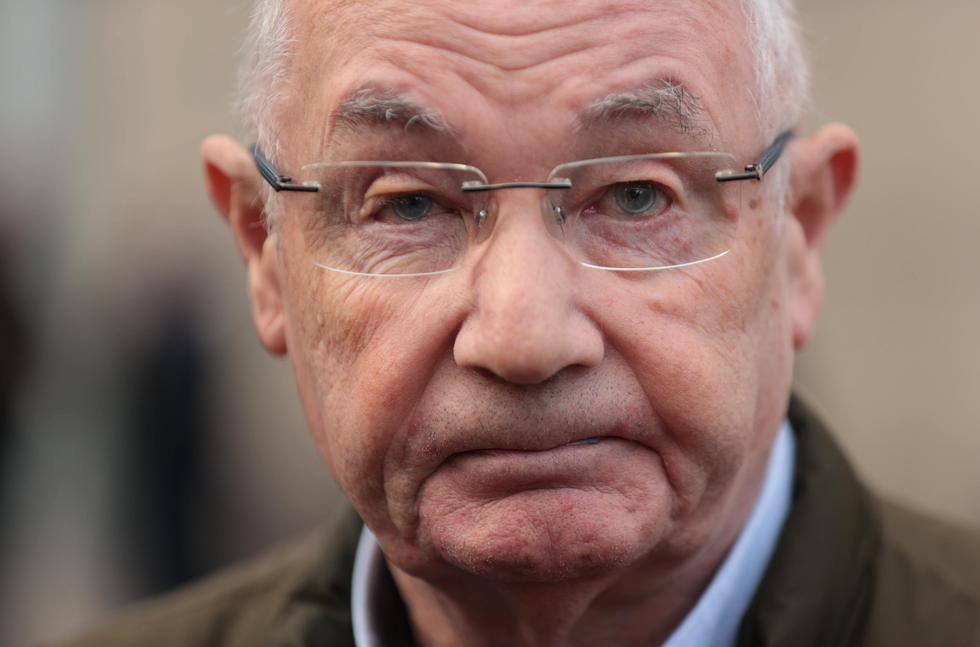A former paratrooper has been found not guilty after he was accused of committing two murders and five attempted murders on Bloody Sunday in Londonderry more than 50 years ago.
The man, known as Soldier F, was on trial at Belfast Crown Court after being accused of murdering James Wray and William McKinney during disorder at a civil rights parade in Derry on January 30 1972.
The solider was also accused of attempting to murder murder Michael Quinn, Patrick O’Donnell, Joseph Friel, Joe Mahon and an unknown person.
He denied all charges.
Thirteen people were shot dead by the Parachute Regiment on the day.
The relatives of the Bloody Sunday victims gave no visible or audible response as Soldier F was found not guilty by Judge Patrick Lynch.
Judge Lynch told the court that on Bloody Sunday a number of Parachute Regiment members entered Glenfada Park North in Londonderry and started firing at unarmed civilians at a distance of 50 metres or less.
He added that it resulted in two murders and a number of people being unlawfully wounded.

Relatives arrive at the court
|
PA
Judge Lynch said: “They had totally lost all sense of military discipline”.
“They were members of a regiment formed in 1942 at the behest of Prime Minister Churchill and had a proud record in World War Two,” he added.
“Those who fought valiantly against SS Panzer divisions in 1944 have had their regiment sullied by some of their successors.”
The judge further said: “Shooting in the back unarmed civilians fleeing from them on the streets of a British City”.

Mickey McKinney, the brother of Bloody Sunday victim William McKinney
|
PA
But, Judge Lynch said there was no concept of “collective guilt” in the courts.
He said the Crown had failed to establish that Soldier F was “knowingly and intentionally assisting in the shootings, with intent to kill or was shooting himself with that intention”.
The judge added that the sole evidence Soldier F was up against was from two other veterans, Soldier G and H.
He said there were difficulties relying on that evdience.
“Their statements, the sole and decisive evidence, cannot be tested in a way that witnesses giving evidence from the witness box would be,” he added.
“Delay has, in my view, seriously hampered the capacity of the defence to test the veracity and accuracy of the hearsay statements.
“The two witnesses are themselves, on the basis of the Crown case guilty of murder as, in essence, accomplices with a motivation to name F as a participant in their murderous activities.
“I find that they have been serially untruthful about matters central to events giving rise to this prosecution. They have committed perjury, G once to the Widgery Inquiry and H twice to the Widgery and Saville Inquiries.”
The judge told the court the evidence provided by the Crown fell “well short” of what was needed for conviction.
Belfast Crown Court further heard that “whatever suspicions the curt may have about the role of F, this court is constrained and limited by the evidence properly presented before it”.
“To convict it has to be upon evidence that is convincing and manifestly reliable,” Judge Lynch said.
He declared that the found Soldier F “not guilty on all seven counts”.
